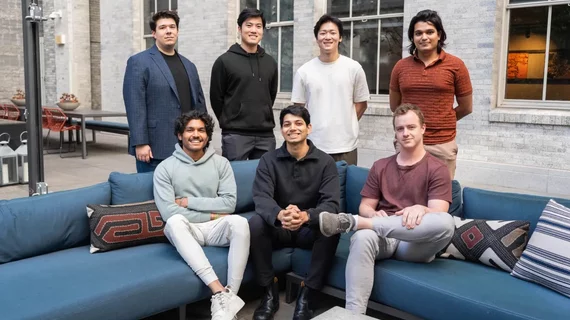Startup aiming to automate 90% of imaging workflows, creating an ‘AI radiology resident,’ raises $23M
New Lantern—a startup aiming to automate 90% of imaging workflows, thereby creating an “AI radiology resident”—has raised $23 million in capital.
Bay Area VC firm Benchmark led the $19 million Series A financing round, with general partner Eric Vishria set to join the artificial intelligence outfit’s board of directors. Founded in 2021, New Lantern claims radiologists “waste” eight hours each shift hand-drawing measurements, dictating reports and fielding follow-up phone calls.
The San Francisco-based startup offers a cloud-native AI radiology suite it says can automate 25% of these processes, with aspirations to more than triple the figure.
“I’ve seen first-hand the inefficiencies and wasted hours that come with using legacy PACS and reporting software, and with the advancements in AI we can give radiologists back hours in their day to focus on the most critical parts of the job,” software engineer Shiva Suri, founder and CEO of New Lantern, said in a Nov. 20 announcement. “It’s still early days, and we couldn’t ask for a better partner than Eric [Vishria] and the Benchmark team to help us build and scale the company for the long-term.”
New Lantern said its platform allows radiologists to “work faster and focus their energy on images.” This can translate to expedited care and increased revenues for physicians working in productivity-based arrangements. The platform incorporates tools such as single-click volumetric measurements to speed up comparison and diagnosis, AI report impressions generated in “seconds,” and adaptive protocols that learn how radiologists prefer to arrange and view images. Leaders claim the product’s deployment can save up to 100 minutes per shift while increasing reimbursement by $100,000 per physician.
Suri told TechCrunch he got the idea for the company after watching his mother, a “well-regarded radiologist,” work from home during COVID lockdowns. He declined to discuss current customers but said some practices are already using the technology.
“I watched her work day in and day out, and she was wasting about seven to eight hours on boring workflow tasks,” Suri, who previously worked as a software engineer for data streaming platform Confluent, told the news outlet. “Only 5% of her time, she had her radiology thinking cap on. That was really sad.”
Others participating in the funding round included Afore Capital, Anthology Fund, Neo, and SV Angel. Several individual investors/tech CEOs also pitched in, among them, Guillermo Rauch (head of Vercel), Amjad Masad (Replit), Saji Wickramasekara (Benchling), and Jay Kreps (Suri’s previous employer, Confluent). New Lantern will use the money to bolster both research and development, along with filling out its sales and engineering staffs.
"Thanks in part to [Nobel Prize winner] Geoff Hinton’s comments years ago, countless companies have chased the idea that AI should replace radiologists,” Benchmark’s Eric Vishria said in the announcement. “Shiva [Suri] was the first entrepreneur I met who figured out a much better approach is to use AI to replace the drudgery of the job, like making measurements in 3D and writing reports, so radiologists can focus on what they’re great at—reading scans."

